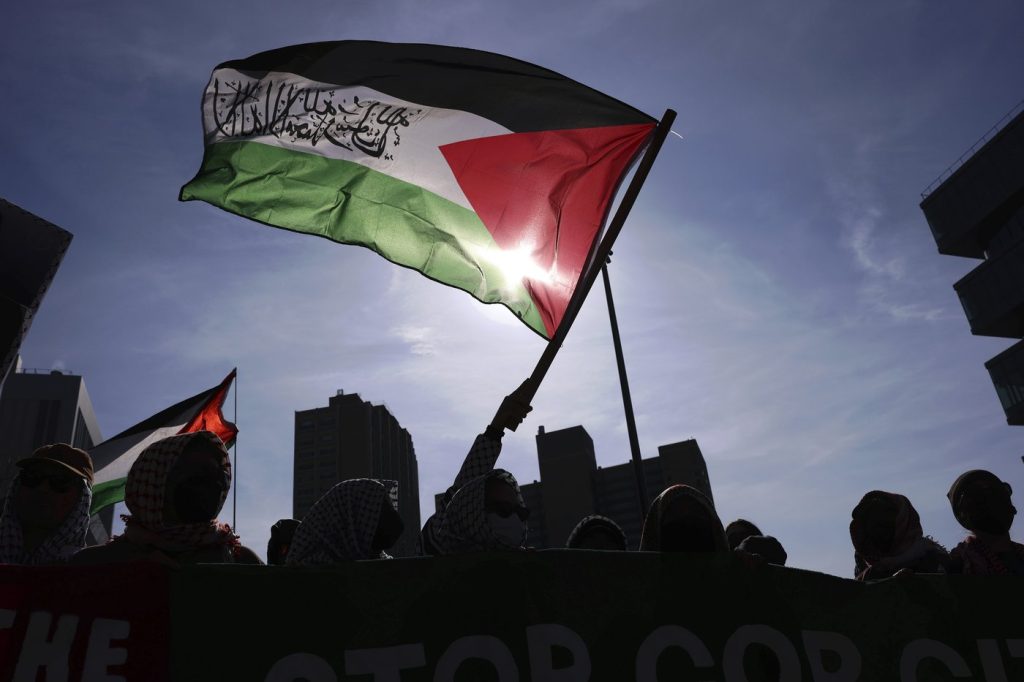When President Donald Trump signed an order calling for the deportation of foreign students who participated in “pro-jihadist” protests related to the Gaza conflict, some supporters of this crackdown were already engaged in efforts to identify potential targets for expulsion. The measures employed by pro-Israel private groups to expose these protesters involved the use of facial recognition technology and other methods, leading to crucial discussions about the implications of these actions.
A right-wing Jewish organization disclosed its use of facial-recognition software to identify campus protesters and submitted a list of identified individuals to university administration officials with the goal of initiating deportation proceedings. In a related development, a New York computer engineer has developed facial-recognition tools specifically designed to identify masked protesters and has discussed licensing this technology to other pro-Israel groups to augment their efforts.
The increasing use of facial-recognition technology by private entities has raised concerns, with legal experts highlighting that this territory was previously dominated by law enforcement. Sejal Zota, an attorney representing California activists in a lawsuit against the facial-recognition company ClearviewAI, remarked that the collaboration of private groups in such surveillance endeavors represents an alarming trend. She expressed concern over the expanding reach of surveillance mechanisms into civilian life, particularly regarding dissent and protest activities.
In tandem with technological initiatives, some private organizations have begun to encourage their members to report protesters to immigration authorities, further escalating the stakes for those involved in dissenting activities at universities. Elizabeth Rand, president of Mothers Against Campus Antisemitism, urged her supporters on social media to report foreign students and faculty who express support for Hamas. This campaign has generated heightened anxiety among foreign students who fear the ramifications of such actions.
While it remains uncertain whether names submitted by these private groups have reached high-level government officials, there has been a notable increase in concern following events like the arrest of Mahmoud Khalil, a Palestinian-descended graduate student at Columbia University, who was instrumental in protests against Israel’s actions in Gaza. The resulting climate has fostered fears among students engaged in protests, with one anonymous Columbia graduate student highlighting the risk of pursuing activism under the current political climate.
Supporters of deportation efforts argue they are targeting students whose activities extend beyond mere protest, claiming a focus on those who incite violence or engage in unlawful actions such as occupying campus buildings. Eliyahu Hawila, the software engineer who developed the facial-recognition tool, echoed this sentiment, questioning the motivations of students on visas who participate in activities deemed as civil unrest or promote violence against others.
However, advocates for Arab-American communities express concern about the potential for wrongful targeting of students involved in legitimate activism, cautioning that such actions could inadvertently affect individuals who have not engaged in any unlawful behavior. The intensified campaigns to expose pro-Palestinian activists have ushered in a more serious dimension to doxing, wherein personal information is uncovered and disseminated to incite harassment.
While doxing has been employed in various contexts during the upheaval surrounding the Gaza situation, the long-term repercussions have generally been limited. The application of facial-recognition technology by private groups, coupled with calls to report individuals to immigration authorities, significantly elevates the risks involved. Abed Ayoud, national executive director of the American-Arab Anti-Discrimination Committee, criticized these practices as concerning, underscoring the lack of transparency surrounding the individuals collecting this information and the possible implications of outsourcing surveillance efforts.










